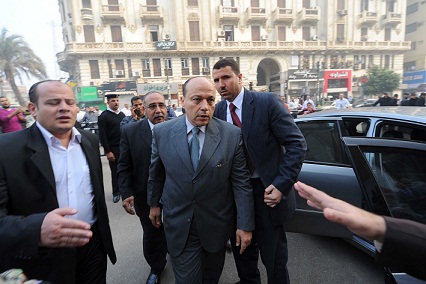
(AFP Photo)
By Kanzy Mahmoud
Amnesty International issued a report Wednesday condemning the military’s excessive and disproportionate use of force against former president Mohamed Morsi supporters, culminating in the death of about 88 people since Friday 5 July, including three members of the security forces, with around 1,500 wounded.
Deputy Director of Amnesty International’s Middle East and North Africa Programme Hassiba Hadj Sahraoui commented on Monday’s clashes in front of the Republican Guard headquarters which left 51 Morsi supporters dead, saying that regardless of whether protesters used violence or started the attack, “the response [of the armed forces] was disproportionate and led to the loss of life and injury among peaceful protesters.”
Amnesty International has visited morgues, hospitals and sites of violence in Cairo and Alexandria and found that “many of those killed and injured had been shot in the head and upper body with shotgun pellets and live ammunition,” read the report, adding that such findings suggested the security forces’ disproportionate use of force.
Several women involved in Monday’s clashes had shotgun pellet wounds in the upper body including the back, and a child at a Cairo hospital suffered from wounds in his head, face and legs, reported Amnesty International.
The organisation also found that security forces had intervened too late or not at all during clashes between pro and anti-Morsi protesters in Cairo and Alexandria on 5 July, where security forces shot four people dead in front of the Republican Palace and about eight people died in clashes in Tahrir Square and the Manial district with the security absent from the scene.
Amnesty added that 17 were killed on the same day in Sidi Gaber area in Alexandria, while a local resident Mahmoud Badr al-Din was stabbed and thrown off the roof by Morsi supporters, stressing that security forces ignored calls for help.
“It is the responsibility of the security forces to maintain security and protect lives. However, instead of preventing further bloodshed they appear to have contributed to it by using excessive force and ignoring the people’s pleas for help,” Hassiba Hadj Sahraoui said.
Amnesty also called on Egyptian authorities to ensure proper autopsies and medical reports to facilitate investigations on the clashes, expressing concerns that such clashes may take place soon due to statements made by “the Muslim Brotherhood leaders vowing to continue protesting until the former president is reinstated.”
Arab League Secretary General Nabil al-Araby described the Monday clashes as “totally alien to Egyptian political culture,” state-run Al-Ahram reported.
Al-Araby asked for the formation of an independent fact-finding committee comprising personalities known for their competence and expertise to investigate into the clashes as soon as possible, adding that the importance of a national dialogue between parties would “save Egypt from coming risks and help the Egyptian institutions preserve peace, security and social stability.”


